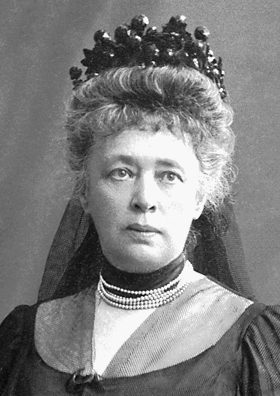From workshops and trainings to large conferences, our modern facilities — including hybrid options and sustainable catering — ensure a smooth experience. We also offer optional support with guest registration, check-in, ticketing, and event communications. Contact our team for a custom, no-obligation quote:

- This event has passed.
[International Women’s Day] Bertha von Suttner: A beacon for women in international law and peace activism

In honour of International Women’s Day, the Asser Institute will host a panel discussion, reflecting on Bertha Von Suttner’s (9 juni 1843 – Wenen, 21 juni 1914) invaluable contributions and examining how her principles continue to influence the work of legal professionals and peacebuilders today. As a pioneering figure in the peace movement and the first woman to win the Nobel Peace Prize, von Suttner’s legacy resonates powerfully with the Asser Institute’s celebration for its 60th year and mission of advancing international law.
More than a century ago, Bertha von Suttner made history as the first woman to win the Nobel Peace Prize. The Peace Palace’s ‘spiritual mother’, and bestselling author of the world famous anti-war novel “Die Waffen Nieder” (Lay Down Your Arms), fought tirelessly for peace, challenging male-dominated power structures that justified war. But today, the struggle for gender equality in international law and peacebuilding is far from over.
On 6 March, the Asser Institute will honour von Suttner’s legacy with a special International Women’s Day event, bringing together female judges, legal scholars, and activists for a night of reflection. The evening will open with a speech by Liesbeth Lijnzaad This link opens in a new tab, Judge at the International Tribunal for the Law of the Sea, highlighting the importance of women’s contributions to international law. Next, artist Ingrid Rollema This link opens in a new tab, well-known for the statue of Von Suttner This link opens in a new tab that she made for the International Court of Justice in The Hague, will deliver the keynote. Rollema, who travelled all over Europe to retrace Von Suttner’s footsteps, will share the evening with a story about Von Suttner’s “juicy life” (dixit Rollema) and how her impactful legacy can inspire and empower women working in, or interested in, international law.
Following this, a panel discussion featuring Prof. Dr. Janne E. Nijman This link opens in a new tab (UvA, Geneva Graduate Institute), and Priya Pillai This link opens in a new tab, lawyer and international law specialist, will delve into critical questions: How far have we come in achieving gender equality in international law? What challenges remain? What role do women play in shaping global justice?
Moderated by Gabrielė Chlevickaitė This link opens in a new tab (Asser Institute), the discussion will be followed by a Q&A session, allowing you to engage with the speakers and share their perspectives.
With pressing geopolitical conflicts and growing threats to international legal norms, this discussion is a timely reminder that gender equality is not just a matter of rights—it is essential for achieving lasting peace. Honouring peace activist Von Suttner would offer some vital balance and celebrate the crucial contributions of women to international law.
As the Asser Institute’s former academic director Janne Nijman once put it:
“We need to know and teach about women who dared to swim against the tide. Bertha Von Suttner did exactly so. She was the first woman to win the Nobel Peace Prize, so she is an important historical example.”
Date: 6 March 2025
Venue: Asser Institute
Preliminary programme
19.00
Registrations open
19.30
Opening speech by Liesbeth Lijnzaad
19.40
Keynote speech by Ingrid Rollema – About Bertha’s ‘juicy’ life
20.00
Women in International Law: Shaping Peace, Justice and the Path for Future Generations
A panel discussion by female judges and scholars featuring Janne E. Nijman, Priya Pillai.
20.30
Q&A
20.45
End
Moderation: Gabrielė Chlevickaitė
About Bertha von Suttner
Bertha von Suttner was an advocate and writer who used her voice to shape the global pacifism movement. Her novel Lay Down Your Arms was groundbreaking, not just for its anti-war message but for how it humanised the horrors of war, making it accessible to a broad audience. She believed that ‘war was an institution handed down to us by the barbarians and to be removed by civilisation.’ According to her, the world was simply not organised for states to solve their problems non-violently. Therefore, her idea of peace was to be achieved by law.
As vice-president of the International Peace Bureau, she played a crucial role in fostering international cooperation and promoting peaceful conflict resolution. She actively participated in the First Hague Peace Conferences in 1899 and 1907, where world leaders and diplomats gathered to discuss disarmament and international arbitration. Her influence reached Alfred Nobel, contributing to his decision to establish the Nobel Peace Prize. Though she did not live to see the First World War, her work laid the foundation for future peace efforts, inspiring generations of activists.

